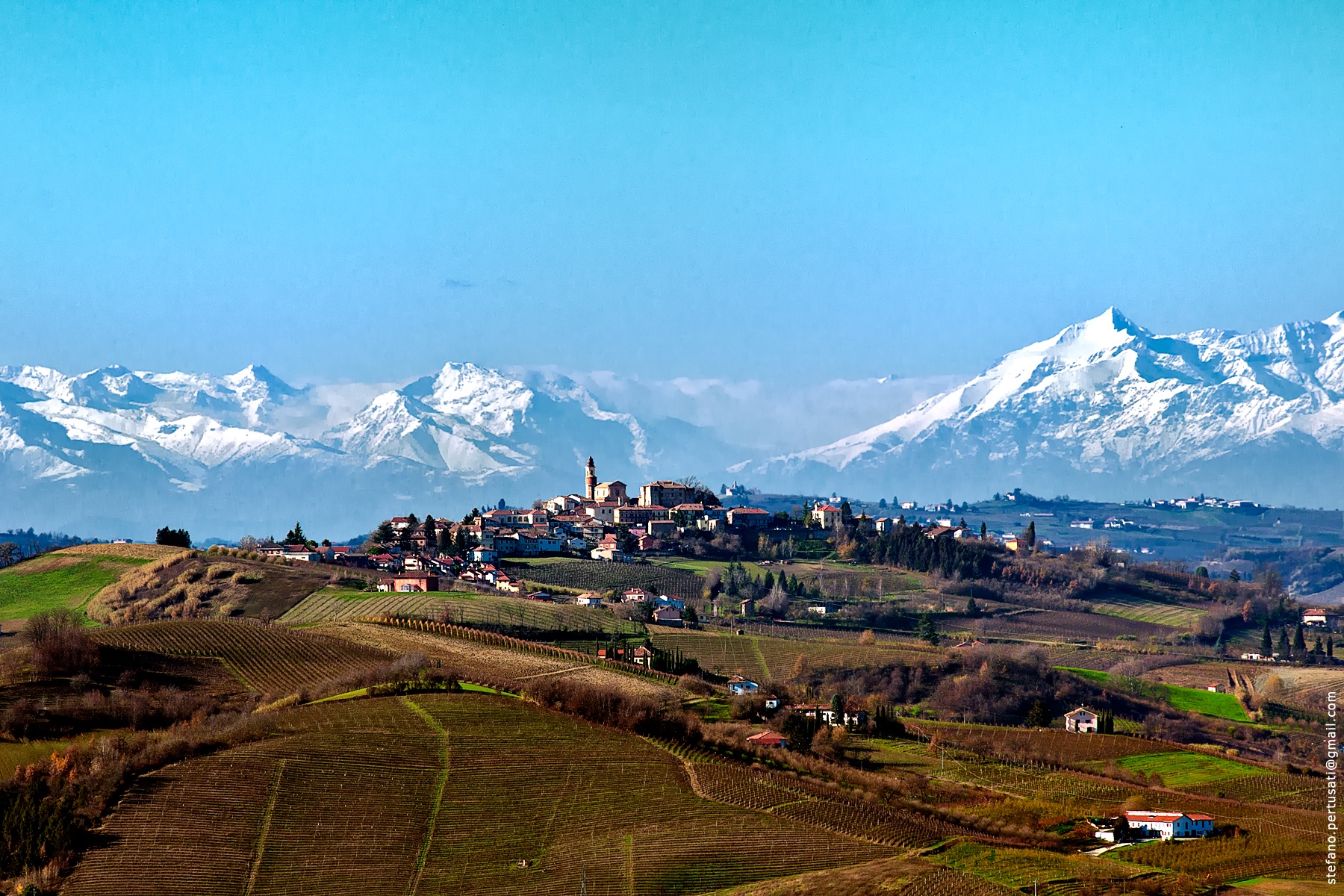
Barolo is situated in Piedmont in the North West of Italy and is the source of some of the greatest, most age-worthy red wines in the world. A complex patchwork of vineyards across the hills surrounding a cluster of villages (one of which gives its name to the appellation), Barolo is both well-established as a staple of any serious cellar and one of the most exciting, dynamic wine regions in Italy.
Native from Piedmont, at the foot of the Alps, Nebbiolo is the grape of Barolo, with no other variety authorised in the blend. Known for its concentration of tannins, Nebbiolo produces complex, long-lived wines that offer profound expressions of their place. As with all great wine regions, there are distinct differences evident in the glass from commune to commune and vineyard to vineyard. There are few wine producing regions in the world with quite such an array of exposures and topographies within a relatively small area, which goes some way to explaining the profound contrasts that are often evident, even between wines produced from neighbouring sites.
Despite the endless complexity of the landscape, there are some useful generalisations that can be made. There are essentially two main soil types in Barolo – Tortonian calcerous marl soils in the west, around the communes of Verduno, La Morra and Barolo, and Helvetian sandstone soils to the east, around the communes of Serralunga and Monforte. Castiglione Falletto has sites across the boundary of both soil types. For those without the inclination to study geology and brush up on epoch timelines, the overriding impact of the soils on the wines is that those produced in the west tend to be more open and fragrant, whereas those from the south-eastern communes are often denser and require a little longer in the cellar before blossoming.

